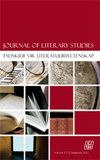约瑟夫·康拉德《艾米·福斯特》中的“种族”、语言与排外
IF 0.2
4区 文学
0 LITERARY THEORY & CRITICISM
引用次数: 0
摘要
Chinua Achebe对《黑暗之心》创造者的敌意不仅以种族主义的指控结束,还延伸到反犹太主义和仇外心理。“仇外心理”一词在种族和语言的辩证法中错综复杂,在当前的侨民和身份政治中具有强烈的特征。关于康拉德的短篇小说《艾米·福斯特》(Amy Foster),传统的学术研究主要围绕着两条线索展开,即这个看似标题有误的故事的主人公扬科·古尔(Yanko Goorall)极度孤独,以及他在异国他乡无法沟通。本文从后殖民主义提供的解释学空间出发,假设了“种族”的结构,正如19世纪所理解的那样,是扬科和艾米婚姻破裂的主要催化剂。它坚持认为,前者的悲剧与其说是一个漂流者和他当地的英国妻子之间缺乏沟通的结果,倒不如说是在面对一个种族中心主义(如果不是猖獗的“种族主义”)、孤立的、狭隘的社区时注定要发生的。文章的结论是,康拉德的故事是对人类心理种族主义的研究,表现在对他人的歧视。在地理、文化和语言上流离失所的扬科(就像康拉德自己一样)是另类的转喻,他试图重新获得自己的语言和文化身份,但最终以悲剧告终。本文章由计算机程序翻译,如有差异,请以英文原文为准。
“Race”, Language and Xenophobia in Joseph Conrad’s “Amy Foster”
Summary Chinua Achebe’s animus against the creator of Heart of Darkness did not simply end with the charge of racism but extended to anti-Semitism and xenophobia as well. The term “xenophobia”, which is imbricated in the dialectics of race and language, features strongly in the current politics of diaspora and identity. Conventional scholarship on Conrad’s short fiction “Amy Foster” has followed two predominant strands, namely, the extreme loneliness of Yanko Goorall, the central protagonist of this seemingly mis-titled story, and his inability to communicate in a foreign land. This article, from the hermeneutic space afforded by postcoloniality, postulates the construct of “race”, as understood in the nineteenth century, as a major catalyst in the breakdown in the marriage of Yanko and Amy. It holds to the view that the tragedy of the former is not so much the outcome of a lack of communication between a castaway and his local English wife, but is predetermined in the face of an ethnocentric, if not rampantly “racist” insular, parochial community. The article concludes that the story is Conrad’s study of the racist recesses of the human psyche which manifest in discrimination against the other. Displaced geographically, culturally and linguistically, Yanko (like Conrad himself) is a metonymic inscription of alterity, whose attempts to reclaim his linguistic and cultural identity end in tragedy.
求助全文
通过发布文献求助,成功后即可免费获取论文全文。
去求助
来源期刊

Journal of Literary Studies
Multiple-
CiteScore
0.50
自引率
0.00%
发文量
0
期刊介绍:
The Journal of Literary Studies publishes and globally disseminates original and cutting-edge research informed by Literary and Cultural Theory. The Journal is an independent quarterly publication owned and published by the South African Literary Society in partnership with Unisa Press and Taylor & Francis. It is housed and produced in the division Theory of Literature at the University of South Africa and is accredited and subsidised by the South African Department of Higher Education and Training. The aim of the journal is to publish articles and full-length review essays informed by Literary Theory in the General Literary Theory subject area and mostly covering Formalism, New Criticism, Semiotics, Structuralism, Marxism, Poststructuralism, Psychoanalysis, Gender studies, New Historicism, Ecocriticism, Animal Studies, Reception Theory, Comparative Literature, Narrative Theory, Drama Theory, Poetry Theory, and Biography and Autobiography.
 求助内容:
求助内容: 应助结果提醒方式:
应助结果提醒方式:


